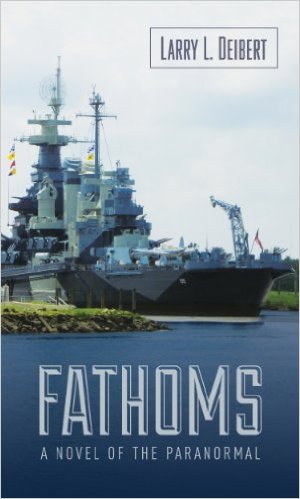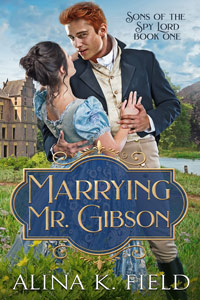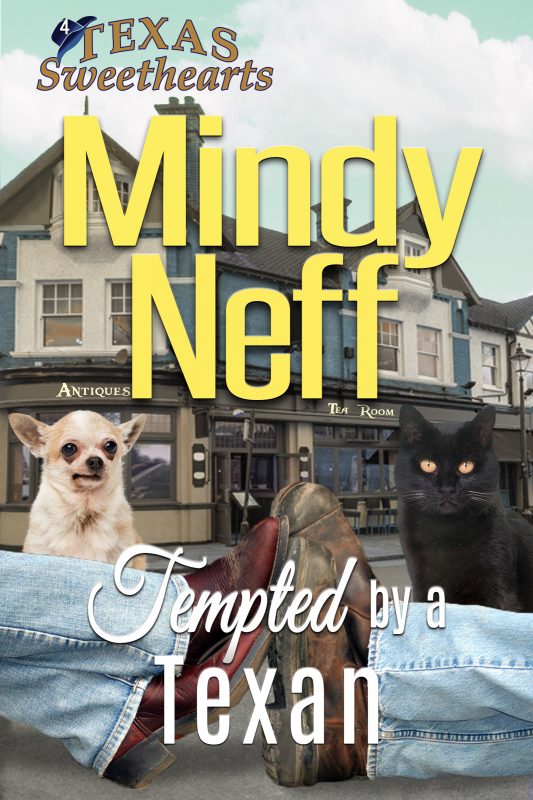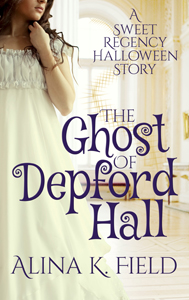Chris Vogler – Legendary Writing Coach
August 2, 2006 by A Slice of Orange in category Archives tagged as Author Interview
“You’ve got to pick up Chris Vogler’s The Writer’s Journey!†That’s what I tell any newbie who asks me for writing advice.
So when I found out I could see him at OCC’s Autumn Affaire, I was beyond thrilled. But excited as I was, I wondered what more could I possibly learn that I didn’t already learn in his book? His answers will surprise and fascinate you. You’ve got to go to Autumn Affaire!
Q – A long-time fan of The Writer’s Journey, I’m thrilled to have the chance to attend your workshop. What kind of information will we see in your workshop that we won’t find in your book?
A – These days I am interested in polarities, the way people tend to become polarized in relationships and stories tend to be split between poles of good and evil, young and old, idealistic and cynical, depressed and hopeful, etc. I’ve been working out for myself a theory of how story-telling evolved and what purpose it serves. Since the book was written I’ve continued to develop my thinking about how the story actually impacts the organs of the body, and I’ll be talking about how we can use that knowledge to tell better stories.
Q – That reminds me of something I saw on your website. You say that when you evaluate a story, your criterion is that they have to affect you “in at least two organs of the body.†What two organs? Can you explain?
A – He’s got a brilliant answer to this one, but you’ll have to see it in Orange Blossom. You can receive it by e-mail. Sign up for Orange Blossom today!
Q – When evaluating projects, you seem to rely more heavily on gut reactions than story paradigms and trends you’ve studied. Is that true? Why?
A – Actually, I use it all. An axiom of mine is “Nothing is wasted.†Every single script or project is different, requiring different language and tools. I’m working for Paramount now and I’m using everything I ever learned. One day I’m quoting Robert McKee or Michael Hauge to make a point, the next day I’m using a principle from Aristotle or Shakespeare. I dipped into the history of vaudeville recently and found a whole new set of principles for arranging an evening’s entertainment, an area of knowledge I call “Showmanshipâ€. The Hero’s Journey language is certainly useful, especially when I’m dealing with someone who is already versed in it.
Q – The Hero’s Journey began as a legendary seven-page memo that you wrote for your own amusement while working at Disney in the 80’s. It soon became required reading for young executives in Hollywood. In what capacity were you working at Disney when you wrote that memo?
A – I was a story analyst, reading and reporting on eight to ten scripts a week and occasionally doing story notes and research projects. I was in the process of carving a niche for myself as a consultant by showing interest in certain genres, like comic books, science fiction, historical fiction, horror, and fantasy.
Q – What was the catalyst that made you write it?
A – I had discovered Joseph Campbell’s work in mythology while in film school and had written a paper about it, an essay which I carried with me when I became a story analyst. I showed it to various people, writers, executives, other story analysts, when we got to talking about the principles of story-telling. It was the foundation of the memo. I could see that at Disney, memos were a way of getting into the corporate mind, a way of transmitting ideas and expressing a vision, for a specific project or for the entire industry. I had the feeling that in Campbell’s work I had discovered something very useful for the movie industry, and I needed to go through the formal exercise of correlating Campbell’s stages of the hero’s journey with what I perceived happening in movies. So I wrote the memo and started circulating it around the studio.
Q – Whatever happened to the memo that started it all?
A – It spread all over town by fax and xerox like a virus. It was plagiarized a number of times, once by a young Disney executive who threw away my cover page and put his own name to it. So I knew I had something worth stealing. I added to the original seven-page version eventually, doubling and tripling its length, but there was something magical about the starkness of the earliest version. People place an almost superstitious value on finding a copy of the seven-pager. I don’t know if I even have one.
Q – How did you originally intend for writers to use The Writer’s Journey?
A – I hoped people would use it as a rough guide to structure, a framework against which they could compare their own stories. I never wanted it to be a cookbook or a book of rules, but rather something to inspire people and invite them to think more deeply about the purpose and design of stories. You can use it to outline a story in the early stages of development, or you can use it as a diagnostic tool once the story is written, checking each part to see that it is doing its job.
Q – How do you feel when you see students rigidly adhering to The Writer’s Journey as a “story cookbook�
A – It disappoints me and makes me uncomfortable, that’s how! If you only look at the map, you’ll never see the sights or experience the wonderful lucky mistakes and wrong turns that sometimes lead you to totally new worlds.
Q – Many writer’s keep your book in mind while writing their projects. What is something you keep in mind when you are writing your personal projects?
A – I am always trying to make complex subjects and time periods accessible and interesting to the reader and viewer. I like densely interwoven stories from history and mythology. I am like a traveler who has spent a lot of time in these distant places in my imagination, and now I have to bring some of it back in a form that people can handle and enjoy, without having to spend years there themselves.
Q – You studied film at the USC School of Cinema, ended up at Disney and then went on to write one of the most influential guides on writing for our time. What were your original career plans?
A – I was trained as a journalist at the University of Missouri and had thought I would be some kind of foreign correspondent. I caught the film bug there and it got worse when I joined the Air Force and became a documentary filmmaker for them. While at USC I imagined I would be a screenwriter or director and didn’t anticipate quite the way things have turned out, although I did foresee that Campbell’s ideas were useful and would have a big impact on the industry.
Q – Though your company, Storytech, offers services to writers of all mediums, it seems geared towards helping screen-writers. How are the challenges of guiding screenplays different or similar to guiding novels?
A – It’s no different except that novels can afford to have a different, more sprawling structure than a screenplay. A screenplay has to be like a simple bridge with two or three sets of piers and arches, while a novel can connect the basic elements into almost infinite spans with more levels and offshoots. In scripts a great deal of material that can be easily described in a novel has to be artfully crammed into nothing but the words and pictures, what people are doing and saying. Of course there are special skills in novel-writing – how to describe things, how to handle dialogue, how to end chapters, etc.
Q – What is the best advice you’ve ever received?
A – Joseph Campbell told me “You go with this stuff, young man, it’ll take you a long way.â€
Q – What is the worst?
A – When I applied for a job with a TV producer very early in my career, he told me I needed to go to a bar, get drunk, and get into a fight with some sailors.
Q – Are there any words of inspiration on your computer, in your office or in your mind when you write or guide another writer?
A – On the bulletin board by the computer: “There must be a beginning to any great matter but the continuing on to the end until it is thoroughly finished yields the true glory.†Sir Francis Drake
Q – What do you attribute your success and longevity in the industry to?
A – One thing seems to have served me well and that’s enthusiasm. I really, really like my genres – science fiction, fantasy, children’s lit, myth, etc. – and I let my employers know it. I claim territory and they seem happy to let me work on projects in my areas. Fortunately my genres make good special effects movies and are popular right now so there is a lot of work.
I also have a Germanic strain of thoroughness and I will attack a subject with more detail and depth than most people would bother with.
Q – Have you ever suffered writer’s block? If so, how did/do you get past it?
A – Aggh! Terrible writer’s block. One of the great things to deal with that is Julia Cameron’s idea of “morning pages†from THE ARTIST’S WAY, bless her heart. That got me writing something every day and made it habitual and much, much easier. I also learned from Natalie Goldberg who teaches that it is truly and simply making words flow through your fingers into the pencil or into the keyboard. The other key is having somebody else setting deadlines for me since I can’t do that for myself. A deadline is a great blessing.
Q – What are you dying to try next?
A – I want to write something very personal about the wonderful experience of moving to a farm with my family when I was twelve years old. In another book I want to set down the story of how story-telling came to be and some of the principles I believe in.
Q – Can you give me a statement that defines you or your career or where you are at in your life/career right now?
A – I am still a seeker of meaning and purpose. My major work is trying to understand how stories came to be and how they can be used to heal and transform.
Q – What is the one thing you’ve never been asked, but you wish someone would?
A – How did stories come to be? I could talk your arm off on that one.
For more with Chris Vogler join me at OCC’s Autumn Affaire. I’m hoping to get him to talk our arms off about how stories came to be, but I have a feeling that whatever he discusses will surprise and inspire us.
Dana Diamond is the OCC/RWA Secretary, a columnist for OCC’s award winning newsletter, Orange Blossom, a contributor to The Writers Vibe and hard at work on her next book. For more on Dana and her interview with Chris Vogler, be sure to visit Dana’s blog at: www.danadiamond.blogspot.com
Golden Heart Winner!!
July 30, 2006 by A Slice of Orange in category Archives tagged as OCC NewsSANDY NOVY-CHVOSTAL: August 2006 President’s Message
July 24, 2006 by A Slice of Orange in category Archives tagged as President's Message
“No Good Book Lacks Loversâ€
Every writer I know is a bibliophile. Not to be confused with a bibliomania, an indiscriminate book hoarder (I know a few); or a bibliophagic, which is a book-eater (let’s not even go there), a bibliophile is someone with a healthy love of books.
And, being bibliophiles, all the writers I know also have “Keeper Shelves.†These shelves are stocked with books we especially love and that we really don’t (despite what we may say) want to lend out.
But we do like to talk about favorite books and recommend them to our friends. To this end, our fabulous blog editor Jennifer Apodaca (riding high on the success of our recent blog contest, Going to the Chapel… Thank you, New York Times bestselling author Debbie Macomber for judging for us!) has created a new blog category, called “The Keeper Shelf.â€
No, this one isn’t a contest. Jen is simply inviting our members to blog on an ongoing basis about books that they love, and think other OCC members shouldn’t miss.
Now my Keeper Shelf is chock full of books, some old and out-of-print, and others brand-spanking new. The amazing thing to me about all these books is that since joining OCC over 15 years ago, I’ve had the opportunity to actually meet the authors of many of the books I read and reread. While meeting my favorite fiction writers is a personal thrill, meeting the nonfiction writers is always a professional boon for increasing my understanding of craft. Hearing the author discuss his work in person (agent Donald Maass, executive editor Leslie Wainger), never fails to provide insights I’d missed on the printed page.
With this in mind, here are a few books from my nonfiction collection pertinent to upcoming events I don’t want you to miss:
Lessons from A Lifetime of Writing by David Morrell.
Long before our renowned Programs Director Bobbie Cimo snagged Morrell for our August meeting, this book has been on the shelf of many of my friends. Learning that Morrell would be speaking at OCC – and knowing his background not only as the creator of Rambo but also as a writing teacher – and I rushed to get it, too. I was not disappointed. Not only are Morrell’s lessons on craft great, in my opinion his opening discussion of “why do you want to write?†is worth the price of the book alone. Read it before Morrell speaks, and if you are an OCC volunteer, make sure you don’t miss the reception afterward (invites are a volunteer perk) so you can discuss it with Morrell in person.
To the Point–Samples of Successful Synopses by OCC/RWA
More than 25 authors donated the synopses they wrote – synopses that sold – so other writers can learn from them. This collection (originally published by OCC more than 10 years ago), has been newly revised and updated by Ways and Means Director Sandy Brown. Order it in book or CD form on our website, and after you read these synopses, don’t miss the opportunity to talk to the authors about them.
The Hero’s Journey by Chris Vogler.
Before I was published, I studied Vogler’s application of Joseph Campbell’s work to plotting simply because all the published writers I knew had studied it, and because George Lucas had used it to create “Star Wars.†Well, everyone still knows about Vogler’s work, especially Hollywood writers who now pay Vogler big bucks to evaluate their screenplays.
Am I looking forward to hearing Vogler (when he returns from presenting his workshop in Italy) lecture in person at our Autumn Affaire in September? You betcha.
And I’m hoping you’ll be there, too.
Sandra Paul aka Sandra Novy-Chvostal has written ten books for Silhouette and also serves as OCC Co-President with Mindy Neff.
MARY CASTILLO: The Anti-Conference by Mary Castillo
July 16, 2006 by A Slice of Orange in category Archives tagged as A Writer's Life
Not going to conference this year? Me, too! Actually, this will be my second year of absence and I don’t feel guilty or left out at all.
But let me explain. Last year, I was eight months pregnant and of course, the weekend of conference my doctor informed me that I was dilating! (Also, everyone including my editor and agent promised to send me home if I so much as peeked into the Reno Hilton!)
This year I have a book to finish and well, it boiled down to the choice of spending our extra money to leave my boys behind for Atlanta; or go on our first family vacation. My boys and my book won hands down.
So I wanted to share some tips for those of you who aren’t going because you lost the battle of the budget, or you don’t feel ready.
1. Get together with some writer friends and talk about writing over coffee or cocktails. This might be the start of a critique group or even better, new friendships. The best things about conference are the people you meet and the ideas exchanged. Don’t get me wrong, the OCC suite, seminars and networking are priceless. But when I left the conferences in New York and Dallas, I went home invigorated and ready to write. You can only get that charge from fellow writers, so if you can’t be in Atlanta, round up some buddies!
2. Join a Book in a Week program. I can’t think of any better time to buckle down and make some progress on your WIP. Make yourself a promise that if you finish that WIP by fall, you’ll sign up for RWA National in 2007.
3. Write your writer’s business plan. If you plan to finish your WIP by next year’s conference, why not take some time out and dream? Your business plan doesn’t have to be super fancy or formal. It can be a place where you start thinking about how you want to be published. Or, you could make it fancy and formal with charts of your top ten agents, etc.
4. Clean your office, desk or PC files. I don’t know about you, but when I finish a draft, my office looks like a bomb went off and then the firefighters left a huge mess from their efforts to put out the fire. So I take a moment to clean up and when I’m done, I can take a nice big breath of relief. Also, I have this fear that the ghost of the previous draft will haunt me if I don’t clean.
5. Or, just take a break from writing. This worked for me last year … then again, pregnancy hormones and lack of sleep might have had some hand in it. Anyway when I came back to my writing (er, two and a half months later!), I was raring to go and oddly, getting back into the story seemed much easier.
Feel free to use any of these suggestions or ignore them. Either way, make the most of the week while the mice are playing. Sometimes us cats just need a break!
Mary Castillo
Author of IN BETWEEN MEN, Avon Trade
and HOT TAMARA, Cosmo’s Red Hot Read April 05
Please visit http://www.marycastillo.com/
or http://www.marycastillo.blogspot.com/
Announcing the Runners Up and Winner of the Going to the Chapel Contest!
July 12, 2006 by A Slice of Orange in category Going to The Chapel tagged as Contest - Going To The Chapel
First we’d like to thank our judge:
Debbie Macomber, with over 60 Million books in print and the author of new Mira hardcover Susannah’s Garden. Debbie is as gracious and giving as she is talented! Thank you, Debbie!
And now our Second Runner Up is…
The First Runner Up is…
WHEN EVERYONE WAS WATCHING by Louise Knott Ahern
And The Winner!
THE WEDDING UN-DRESS by Maria Dolatkha
Congratulations! THE WEDDING UN-DRESS will be recorded into a podcast by our very own Jina Bacarr. There will be links to the podcast posted on this blog and at the OCC Website
Affiliate Links
A Slice of Orange is an affiliate with some of the booksellers listed on this website, including Barnes & Nobel, Books A Million, iBooks, Kobo, and Smashwords. This means A Slice of Orange may earn a small advertising fee from sales made through the links used on this website. There are reminders of these affiliate links on the pages for individual books.
Search A Slice of Orange
Find a Column
Archives
Featured Books
MARRYING MR. GIBSON
She won't be forced into marriage to a nobleman's by-blow. He won't be trapped into marriage by a father he's never known.
More info →
TEMPTED BY A TEXAN
Her Knight In Shining Armor Came Armed With A Colt .45
More info →Newsletter
Contributing Authors
Search A Slice of Orange
Find a Column
Archives
Authors in the Bookstore
- A. E. Decker
- A. J. Scudiere
- A.J. Sidransky
- Abby Collette
- Alanna Lucus
- Albert Marrin
- Alice Duncan
- Alina K. Field
- Alison Green Myers
- Andi Lawrencovna
- Andrew C Raiford
- Angela Pryce
- Aviva Vaughn
- Barbara Ankrum
- Bethlehem Writers Group, LLC
- Carol L. Wright
- Celeste Barclay
- Christina Alexandra
- Christopher D. Ochs
- Claire Davon
- Claire Naden
- Courtnee Turner Hoyle
- Courtney Annicchiarico
- D. Lieber
- Daniel V. Meier Jr.
- Debra Dixon
- Debra H. Goldstein
- Debra Holland
- Dee Ann Palmer
- Denise M. Colby
- Diane Benefiel
- Diane Sismour
- Dianna Sinovic
- DT Krippene
- E.B. Dawson
- Emilie Dallaire
- Emily Brightwell
- Emily PW Murphy
- Fae Rowen
- Faith L. Justice
- Frances Amati
- Geralyn Corcillo
- Glynnis Campbell
- Greg Jolley
- H. O. Charles
- Jaclyn Roché
- Jacqueline Diamond
- Janet Lynn and Will Zeilinger
- Jaya Mehta
- Jeff Baird
- Jenna Barwin
- Jenne Kern
- Jennifer D. Bokal
- Jennifer Lyon
- Jerome W. McFadden
- Jill Piscitello
- Jina Bacarr
- Jo A. Hiestand
- Jodi Bogert
- Jolina Petersheim
- Jonathan Maberry
- Joy Allyson
- Judy Duarte
- Justin Murphy
- Justine Davis
- Kat Martin
- Kidd Wadsworth
- Kitty Bucholtz
- Kristy Tate
- Larry Deibert
- Larry Hamilton
- Laura Drake
- Laurie Stevens
- Leslie Knowles
- Li-Ying Lundquist
- Linda Carroll-Bradd
- Linda Lappin
- Linda McLaughlin
- Linda O. Johnston
- Lisa Preston
- Lolo Paige
- Loran Holt
- Lyssa Kay Adams
- Madeline Ash
- Margarita Engle
- Marguerite Quantaine
- Marianne H. Donley
- Mary Castillo
- Maureen Klovers
- Megan Haskell
- Melanie Waterbury
- Melisa Rivero
- Melissa Chambers
- Melodie Winawer
- Meriam Wilhelm
- Mikel J. Wilson
- Mindy Neff
- Monica McCabe
- Nancy Brashear
- Neetu Malik
- Nikki Prince
- Once Upon Anthologies
- Paula Gail Benson
- Penny Reid
- Peter Barbour
- Priscilla Oliveras
- R. H. Kohno
- Rachel Hailey
- Ralph Hieb
- Ramcy Diek
- Ransom Stephens
- Rebecca Forster
- Renae Wrich
- Roxy Matthews
- Ryder Hunte Clancy
- Sally Paradysz
- Sheila Colón-Bagley
- Simone de Muñoz
- Sophie Barnes
- Susan Kaye Quinn
- Susan Lynn Meyer
- Susan Squires
- T. D. Fox
- Tara C. Allred
- Tara Lain
- Tari Lynn Jewett
- Terri Osburn
- Tracy Reed
- Vera Jane Cook
- Vicki Crum
- Writing Something Romantic
Affiliate Links
A Slice of Orange is an affiliate with some of the booksellers listed on this website, including Barnes & Nobel, Books A Million, iBooks, Kobo, and Smashwords. This means A Slice of Orange may earn a small advertising fee from sales made through the links used on this website. There are reminders of these affiliate links on the pages for individual books.









































